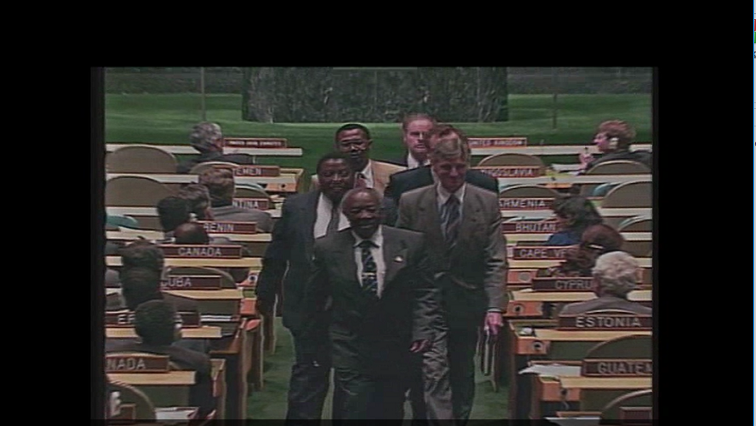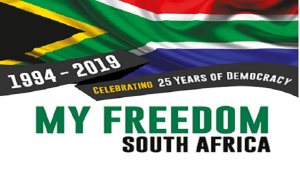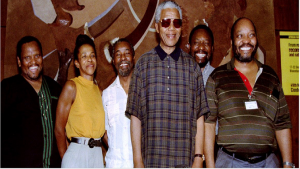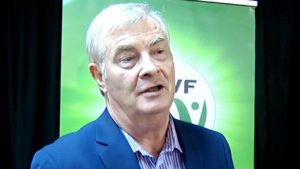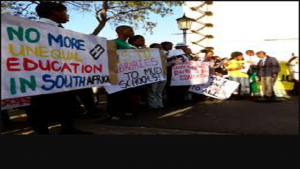This week in 1994, South Africa was re-admitted as a member of the United Nations, ending years of international isolation for the country.
The milestone followed the country’s successful first democratic elections, which were held on 27 April 1994; the establishment of a Government of National Unity and the adoption of a non-racial Constitution for the transitional period.
On 23 June, the UN General Assembly approved the credentials of the South African delegation. The question of apartheid was removed from the agenda of the General Assembly and the Security Council on the 27th.
The move meant that South Africa, one of the 51 founding members of the world body, could resume participating in the activities of the General Assembly from which the country was suspended in 1974 for its racist ideology.
Watch the acceptance of the SA delegation’s credentials:
In 2006, the African Union (AU) endorsed South Africa and it was subsequently elected, with an overwhelming majority, to serve as a non-permanent member of the UN Security Council for 2007 to 2008.
The country again served in the UNSC during the 2011 and 2012 period and has now returned for a third term.
Watch President Ramaphosa addressing the UN in 2018:
The current tenure will end in 2020 and is dedicated to promoting the legacy of the late statesman, Nelson Mandela, his commitment to world peace and the African agenda.
Watch related video:
UN’s role in the fight against apartheid
The first major UN declaration on apartheid happened on 2 December 1950 when the General Assembly declared that the system is based on doctrines of racial discrimination.
The Sharpville massacre in 1960 raised the ire of the world body, with the Security Council taking its first action against apartheid South Africa. The Council adopted Resolution 134, slating the draconian laws and urged Prime Minister Hendrik Verwoerd’s government to abandon its oppressive system.
Police had gunned down 69 peaceful protesters on 21 March and seriously injured 180 others. The victims of the brutality were part of a Pan Africanist Congress (PAC) march calling for an end to pass laws, which prohibited Black South Africans from moving around the country without identity documents (IDs).
Three other civilians were killed and 26 others injured in Cape Town on the same day. Police pounced on them for defying a ban of public meetings and gatherings. They had converged at the Langa Flats bus terminus after hearing the news of the massacre, which had spread across the world already.
The Sharpville tragedy marked a turning point in the struggle against apartheid. In retaliation, angry South Africans engaged in strikes and the state began its crackdown on political activity across the country, jailing PAC and ANC members.
On 7 April, both parties were banned and some of the movements’ members skipped the country and went into exile.
PAC leader Narius Moloto says the heavy-handed tactics of the police had not come as a surprise to political leaders of the time as they knew that blood would have to flow for freedom to be attained. He describes the moment as the beginning of victory for South Africa’s Black majority.
Special Committee Against Apartheid
Three years after the tragedy, the UN Special Committee Against Apartheid met for the first time. On 7 August of the same year, the Security Council adopted Resolution 181 leading the calls for sanctions against Verwoed’s administration.
The UNSC called upon all states to cease the sale and shipment of arms, ammunition and military vehicles to South Africa. The arms embargo was made mandatory on 4 November 1977. Civil society in Europe and the United States had also ramp pressure on their governments to impose economic and cultural sanctions against apartheid South Africa.
After years of supporting the regime, the US government had a change of heart. In 1986, the country passed the Comprehensive Anti-Apartheid Act, which saw many multinational companies withdrawing from South Africa. The move put enormous strain on Pretoria’s economy as local revolt by South Africans had intensified. The country was in flames and the economy was on its knees with government struggling with the effects of the internal and the burden of its military commitment in occupying Namibia.
Amid growing turmoil and failed State of Emergency measures in 1989, President P.W. Botha suffered a stroke and was forced to resign seven months later. He had lost control of his ruling National Party, which was unhappy with his failure to stabilise the country.
His successor, FW de Klerk – nearly six months after assuming office – stunned the world and announced sweeping reforms. In his address to Parliament in February 1990, De Klerk lifted a ban on political parties and announced the release of anti-apartheid activists, including Nelson Mandela.
Watch related video:
While Mandela, South Africa’s first democratic President, has previously acknowledged the role of the international community in collapsing apartheid, former President F.W. de Klerk hasn’t.
De Klerk has cited the realisation of the futility of ongoing violence and repentance as reasons for putting an end to the brutal policies that left children orphaned; parents childless and trapped millions of South Africans in a cycle of poverty.
“The basis for the fundamental reforms in South Africa was established, not by external pressure, but primarily by social changes, which economic growth generated. The realisation that far-reaching change had become inevitable was primarily influenced, not by political speeches and manifestos, but by the exposure to realities, which were brought into millions of homes by television and radio. However, the single most important factor, which became the driving force towards a totally new dispensation in South Africa, was a fundamental change of heart. This change occurred on both sides, which had been involved in conflict over decades,” he said in his Nobel Peace Prize acceptance speech.
De Klerk and Mandela shared the prize for their role in ensuring a peaceful end of apartheid and laying the foundation for a democratic South Africa.
Watch both leaders accepting the award at the Oslo City Hall in Norway:


